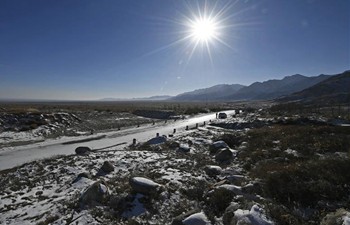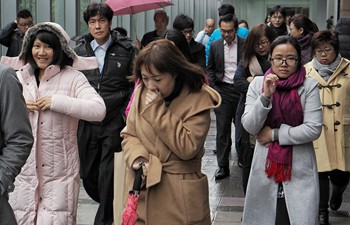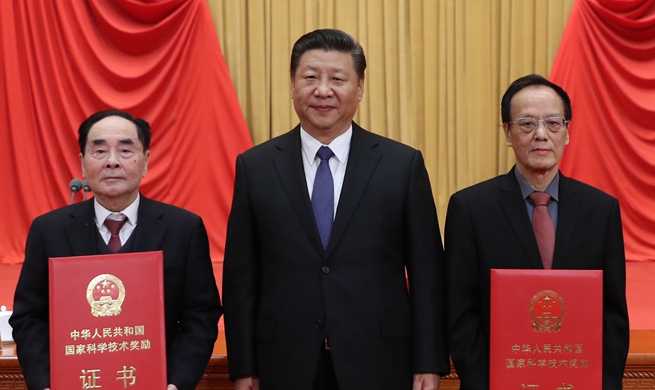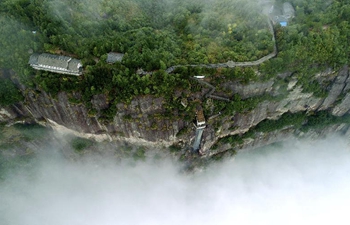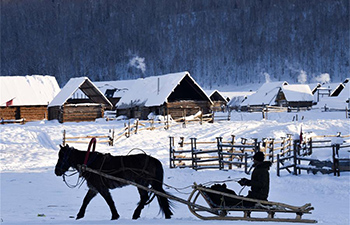SUVA, Jan. 9 (Xinhua) -- Farmers in the South Pacific island nation of Fiji have been urged to be mindful of the impacts of climate change and practice climate smart agriculture to address the challenge.
Fiji remains a developing country with a large agriculture sector which accounts for 18 percent of the national's gross domestic product (GDP). Fiji's economy is expected to register a 3.6 percent growth in 2018.
Fiji's Minister for Agriculture Inisa Seruiratu made the comments in a statement released by the Department of Information on Tuesday.
Seruiratu, who recently had meetings with Fijian crop and livestock farmers, stressing the importance of applying the best agricultural practices to mitigate the effects of climate change.
"I am talking about climate smart agriculture because unfortunately the weather is beyond our control and Tropical Cyclone Winston in 2016 was a sign of the impacts of climate change and we need to adapt with it," Seruiratu said.
Seruiratu acknowledged the integral role of Fijian farmers in providing nutrition in feeding the country with a population of about 900,000 people and reiterated the significance of taking action now to safeguard farmers' interests.
Seruiratu, who recently toured several farms around the country, said last week that the Fijian government was willing to help farmers develop through various assistance programs.
"We will continue to assist individuals, particularly those who are at the commercial and semi-commercial levels but those at the lower end, we prefer to bring them together in groups rather than individually because we can provide machinery and technical assistance to the group as a whole which will surely be felt by the individual farmer," he said.
The Fiji Times, a local English newspaper, has reported that apart from wreaking havoc on sugarcane fields caused by extreme weather events such as severe tropical cyclones, climate change is also affecting how and when sugar cane was planted in the country.
Acting Chief Executive Officer (CEO) for Sugar Research Institute of Fiji Prem Nandan Naidu said earlier that there are only two cane planting windows but in recent years, farmers have been enslaved to weather patterns.
He said that the rainfall patterns have changed and so have the planting seasons.
"Rainfall in recent years has become very localized. Some places receive too much rain while some don't receive any at all," he said.
He encouraged the farmers to adopt more environmentally friendly fertiliser applications and husbandry practices.
Naidu said that climate change is difficult for farmers to prepare for because of the unpredictability of the weather.
Fiji has more than 420,000 hectares of land suitable for agriculture and offers perfect tropical climate for vegetable farming.
The country has vast sugarcane and vegetable plantations and produces such as fruits and vegetables exported mainly to the Australian and New Zealand markets.
The Fijian government has worked on a 2020 agriculture sector policy that clearly outlines the government's ambition to enhance agriculture in the island.
The government has also placed a lot of emphasis on green growth with a Green Growth Framework in place.
To encourage investors to venture into clean energy generation, the Fijian government has provided a 10-year tax holiday to investors venturing into biofuel production using agricultural commodities.





